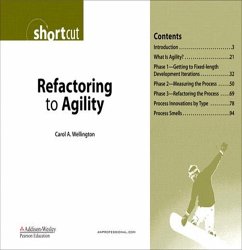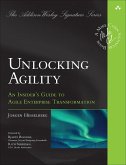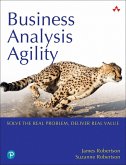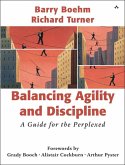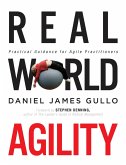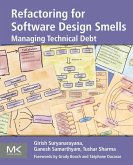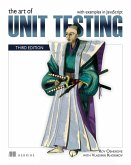This is the eBook version of the printed book.
A Practical Framework for Gaining Agility's Benefits Without the Risk
Agile methodologies, such as XP, Scrum, Crystal, and Lean Software Development enable development organizations to deliver higher-quality software far more rapidly. However, for the "non-agile" development organization, transitioning to agility is an enormous leap, requiring radically new skills and presenting profound risks.
In this book, leading agile practitioner Carol A. Wellington introduces the first systematic, three-phase process for moving smoothly to agility. Just as developers have learned to refactor code to improve performance and maintainability, Wellington shows how to refactor processes to improve agility.
Using Wellington's framework, you can gradually move toward agility, while maintaining full control and avoiding disruption. You'll lay a solid foundation for agility, and then refactor more and more of your processes, systematically introducing agility wherever it delivers compelling value. You can retain current processes that work, and implement the best agile methods for your organization, regardless of their source. This practical approach can help you build organizational confidence in agility, drive measurable benefits, and minimize risk every step of the way.
Coverage includes
· Phase 1: Time-boxed iterations that deliver customer-visible functionality-not just components
· Phase 2: A lightweight measurement process to detect problems and evaluate changes withoutwasting too much time gathering and analyzing data
· Phase 3: Identifying your worst process "smells," uncovering their true underlying causes, and fixing them
· Incrementally bringing agility to planning, estimation, analysis, design, development, and process management
· Eliminating tasks and processes that don't add value
· Overcoming pitfalls and hidden interconnections that complicate your agile transition
· Learning to lead the transition to agility, gaining buy-in from team members, customers, and executives
Whatever your role, organization, or current methodology, Refactoring to Agility can help you reap powerful value from agile methods-without the risks.
Dr. Carol A. Wellington is a professor of computer science and the department chair at Shippensburg University of Pennsylvania. Prior to this position, she was a leader in large software development organizations, building operating systems and real-time embedded applications. Dr. Wellington currently uses this combination of academic and industrial experience as a consultant to help companies question their assumptions about development processes to improve their agility and product quality.
A Practical Framework for Gaining Agility's Benefits Without the Risk
Agile methodologies, such as XP, Scrum, Crystal, and Lean Software Development enable development organizations to deliver higher-quality software far more rapidly. However, for the "non-agile" development organization, transitioning to agility is an enormous leap, requiring radically new skills and presenting profound risks.
In this book, leading agile practitioner Carol A. Wellington introduces the first systematic, three-phase process for moving smoothly to agility. Just as developers have learned to refactor code to improve performance and maintainability, Wellington shows how to refactor processes to improve agility.
Using Wellington's framework, you can gradually move toward agility, while maintaining full control and avoiding disruption. You'll lay a solid foundation for agility, and then refactor more and more of your processes, systematically introducing agility wherever it delivers compelling value. You can retain current processes that work, and implement the best agile methods for your organization, regardless of their source. This practical approach can help you build organizational confidence in agility, drive measurable benefits, and minimize risk every step of the way.
Coverage includes
· Phase 1: Time-boxed iterations that deliver customer-visible functionality-not just components
· Phase 2: A lightweight measurement process to detect problems and evaluate changes withoutwasting too much time gathering and analyzing data
· Phase 3: Identifying your worst process "smells," uncovering their true underlying causes, and fixing them
· Incrementally bringing agility to planning, estimation, analysis, design, development, and process management
· Eliminating tasks and processes that don't add value
· Overcoming pitfalls and hidden interconnections that complicate your agile transition
· Learning to lead the transition to agility, gaining buy-in from team members, customers, and executives
Whatever your role, organization, or current methodology, Refactoring to Agility can help you reap powerful value from agile methods-without the risks.
Dr. Carol A. Wellington is a professor of computer science and the department chair at Shippensburg University of Pennsylvania. Prior to this position, she was a leader in large software development organizations, building operating systems and real-time embedded applications. Dr. Wellington currently uses this combination of academic and industrial experience as a consultant to help companies question their assumptions about development processes to improve their agility and product quality.
Dieser Download kann aus rechtlichen Gründen nur mit Rechnungsadresse in A, B, BG, CY, CZ, D, DK, EW, E, FIN, F, GR, HR, H, IRL, I, LT, L, LR, M, NL, PL, P, R, S, SLO, SK ausgeliefert werden.

